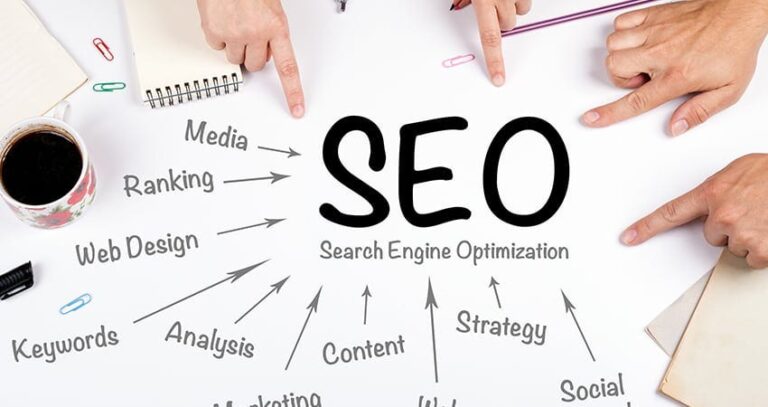
HubSpot NetSuite Integration: Connecting CRM and ERP for Better Business Alignment
For growing companies, managing data across sales, marketing, and finance can be a constant struggle. When a sales rep closes a deal in HubSpot but the accounting team still waits for manual updates in NetSuite, productivity stalls, errors creep in, and customers feel the delay. That’s where HubSpot NetSuite integration comes in—bringing both platforms together to streamline data flow, improve reporting accuracy, and accelerate growth.
Why Businesses Integrate HubSpot and NetSuite
Most mid-sized and enterprise companies rely on HubSpot to manage their marketing and sales pipelines, while NetSuite serves as their ERP backbone for finance, inventory, and operations. However, when these systems operate independently, teams face:
-
Duplicate data entry: Sales teams manually enter data into both systems, resulting in errors.
-
Delayed financial visibility: Finance teams lack real-time access to deal and customer data.
-
Inconsistent reporting: Leadership struggles with inaccurate dashboards due to disconnected data.
Real-life scenario:
Jessica, a Sales Manager at a B2B manufacturing company, noticed her team spending hours updating NetSuite after each deal closed in HubSpot. This delay caused missed billing cycles and poor customer experiences. After integrating HubSpot with NetSuite, deal data now syncs automatically, enabling invoices to be generated instantly—saving over 20 hours per week.
What Is HubSpot NetSuite Integration?
The HubSpot NetSuite integration connects HubSpot CRM with Oracle NetSuite ERP, ensuring that data such as leads, deals, invoices, contacts, and payments remains synchronized across departments. It removes the silos between marketing, sales, and finance by automating information exchange in both directions.
Key data points commonly synced include:
-
Contacts and companies
-
Deals, quotes, and invoices
-
Product and inventory details
-
Financial records and payments
-
Customer lifecycle updates
This integration helps organizations maintain accurate, up-to-date information across their business ecosystem—eliminating manual work and data mismatches.
Benefits of Integrating HubSpot with NetSuite
1. Centralized Customer View
Integration ensures that both marketing and finance teams access the same up-to-date customer data. HubSpot shows deal progress, while NetSuite reflects payment status and invoice history—creating a single, accurate source of truth.
2. Real-Time Data Sync
Any updates made in HubSpot—like a closed deal—instantly reflect in NetSuite. Likewise, if NetSuite logs a new invoice or payment, the information updates in HubSpot CRM automatically. This real-time synchronization prevents discrepancies and keeps every team aligned.
3. Improved Cash Flow Management
By linking HubSpot’s deal pipeline with NetSuite’s billing system, businesses can automate invoice creation immediately after deal closure, speeding up revenue recognition and improving cash flow predictability.
4. Smarter Forecasting
Sales and finance teams gain end-to-end visibility into the customer journey, helping leadership make better forecasts based on accurate, unified data.
5. Time and Cost Savings
Reducing duplicate entries, human errors, and manual syncing frees up your teams to focus on strategy and relationship-building instead of repetitive admin work.
Real Business Impact: Example Scenarios
Scenario 1 – B2B SaaS Startup
A SaaS company using HubSpot for lead management and NetSuite for billing faced delays in subscription renewals because customer records were not updated in real time. After integrating both platforms, renewal alerts automatically triggered in HubSpot when NetSuite marked a payment as pending—reducing churn by 18%.
Scenario 2 – E-commerce Business
An online retailer using NetSuite for inventory and HubSpot for marketing automation struggled with sending promotional offers to customers who already purchased. Integration synced order data from NetSuite into HubSpot, allowing targeted email automation based on purchase history. This increased email conversion rates by 25%.
How HubSpot NetSuite Integration Works
Step 1: Connect Accounts
Authorize access between your HubSpot and NetSuite accounts using API credentials.
Step 2: Define Sync Rules
Choose which data fields should sync—contacts, invoices, products, or deals—and establish directional flow (HubSpot → NetSuite, or two-way).
Step 3: Set Up Workflows
Automate triggers such as:
-
Creating NetSuite invoices when deals close in HubSpot
-
Updating contact records in HubSpot when NetSuite payment status changes
Step 4: Test and Validate Data
Verify that all records update correctly and fields map accurately between systems.
Step 5: Go Live and Monitor
Use dashboards to track sync performance and spot any data mismatches early.
Common Challenges During Integration
Even with the right tools, teams may face a few hurdles:
-
Field mismatches: Data fields may not perfectly align between HubSpot and NetSuite.
-
Permission errors: API restrictions can block sync processes if access isn’t configured properly.
-
Complex workflows: Businesses with custom NetSuite configurations may require deeper logic or custom middleware.
Working with experienced HubSpot integration consultants like Mpire Solutions ensures these challenges are resolved effectively—custom field mapping, secure API setup, and post-integration testing included.
Why Choose Mpire Solutions for HubSpot NetSuite Integration
At Mpire Solutions, our certified HubSpot consultants have extensive experience integrating HubSpot with enterprise systems like NetSuite, Salesforce, Xero, and QuickBooks. We specialize in creating integrations that:
-
Maintain high data accuracy
-
Ensure bi-directional syncing
-
Support complex workflows for finance, sales, and inventory
-
Provide post-integration support and reporting
Our HubSpot NetSuite integration approach is based on real business outcomes—better visibility, faster invoicing, and improved team alignment.
Client Example:
A global logistics firm partnered with Mpire Solutions to sync 15,000+ customer records between HubSpot and NetSuite. The integration reduced invoice errors by 40% and improved response times for finance queries by 60%.
Best Practices for a Successful Integration
-
Start with data cleanup: Remove duplicates before syncing.
-
Map critical fields: Identify which properties matter most for your workflow.
-
Involve all stakeholders: Ensure marketing, sales, and finance teams collaborate from the start.
-
Monitor performance: Schedule regular audits to validate data accuracy.
-
Use custom middleware if necessary: For large-scale or complex integrations, middleware like n8n or custom APIs may offer better control and flexibility.
Future-Proofing with Automation
Integrating HubSpot and NetSuite is just the beginning. With automation tools like n8n or HubSpot Operations Hub, you can expand automation across lead nurturing, billing, and reporting. Businesses that automate these workflows see faster turnaround times, improved accuracy, and higher customer satisfaction.
Conclusion
The HubSpot NetSuite integration bridges the gap between marketing, sales, and finance, creating a unified ecosystem that drives efficiency and insight. Whether you’re a SaaS startup, e-commerce brand, or manufacturing firm, connecting these two systems ensures your teams operate from one version of truth.
To learn how Mpire Solutions can help integrate HubSpot with NetSuite for your business, book a free consultation today.
FAQs
1. What does HubSpot NetSuite integration do?
It connects HubSpot CRM with NetSuite ERP to synchronize contacts, deals, invoices, and payments, reducing manual work and improving data accuracy.
2. Can I integrate HubSpot and NetSuite without coding?
Yes, integration tools and HubSpot-certified partners like Mpire Solutions can configure it using APIs or middleware—no coding required for most setups.
3. What data can sync between HubSpot and NetSuite?
Contacts, companies, deals, invoices, quotes, and payment statuses can be synced in real time across both systems.
4. How long does it take to set up HubSpot NetSuite integration?
Depending on the complexity, setup can take 1 to 4 weeks, including testing and workflow configuration.
5. Why should I hire an expert for this integration?
Certified partners ensure accurate field mapping, secure data handling, and error-free synchronization—saving time and reducing risks.



